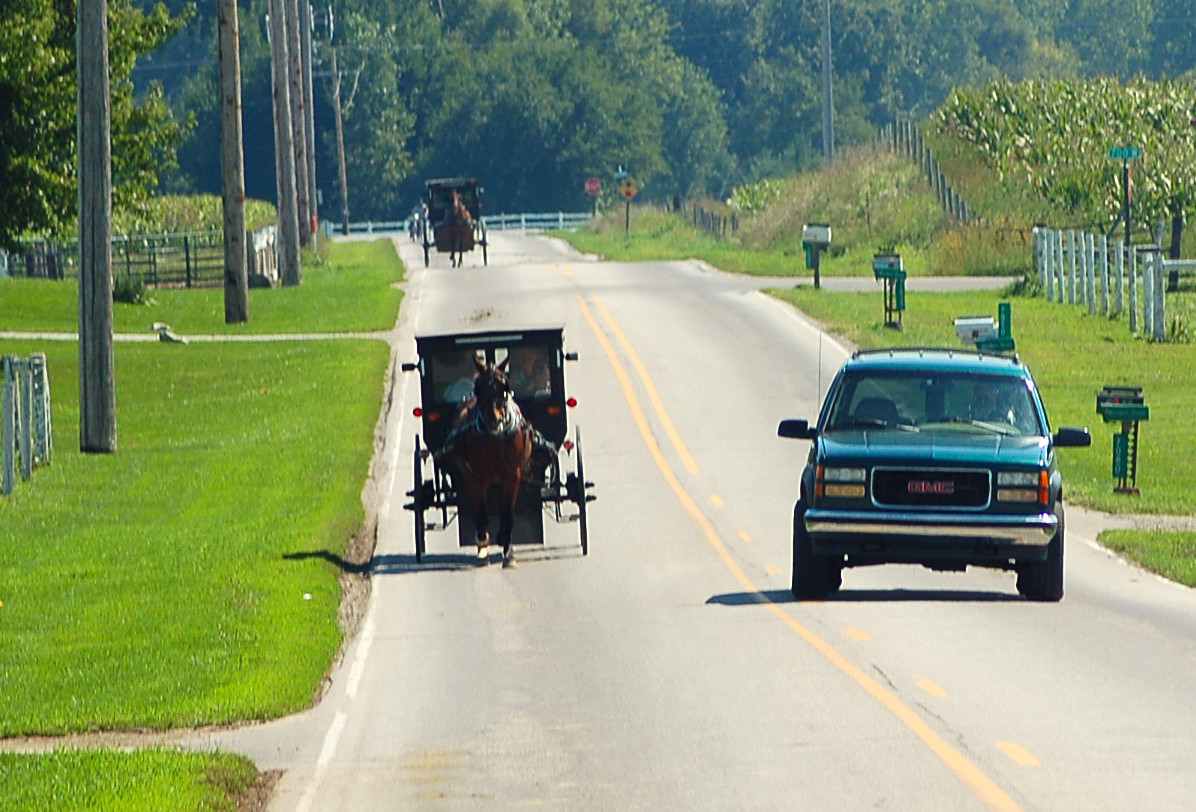
Shipshewana is the only Indiana entry in “1,000 Places to See Before you Die.” Each year more than one million visitors come to this self-described “Town of Character,” located about 25 miles east of Elkhart, to see how its Amish residents manage to lead such simple lives amid twenty-first century complexity.
The Amish, like the Mennonites, are spiritual descendants of the Anabaptists, European Christians who rejected the idea of infant baptism and persecuted for their beliefs. They separated from the Mennonites in 1693 when their founder, Jakob Ammann, decided Mennonites were too accommodating of a sinful world. The Amish came to Pennsylvania in the early eighteenth century seeking religious freedom and later came to Ohio and Indiana seeking farmland for their children.
The Amish past is chronicled in the Menno-Hof Museum just south of Shipshewana’s only traffic light. The Amish present can be learned from a ride through the countryside in a horse drawn Amish buggy guided by a retired farmer. The drivers, who speak a German dialect at home, are willing to answer any questions put to them by the “English,” their name for outsiders. As the drivers will explain, the Amish do not avoid all modern conveniences, but only ones that their local Ordnung decides make life too comfortable. So an Amish family may use a powered lawn mower so long as it is not self propelled or a tractor so long as it does not have rubber tires. A harness factory may use tools powered by compressed air but not by electricity. Most Amish will ride in an automobile owned by others but will not own one themselves. The Amish want to be reminded constantly of their separation from society and their need to trust God and each other.
Not all the goods in Shipshewana’s 100 shops are made locally and the food in its popular restaurants is predictable. However, the unique appeal of Shipshewana does not come from its merchandise or its food. It comes from residents willing to share their lives of piety and simplicity with people from a world too often lacking both.



